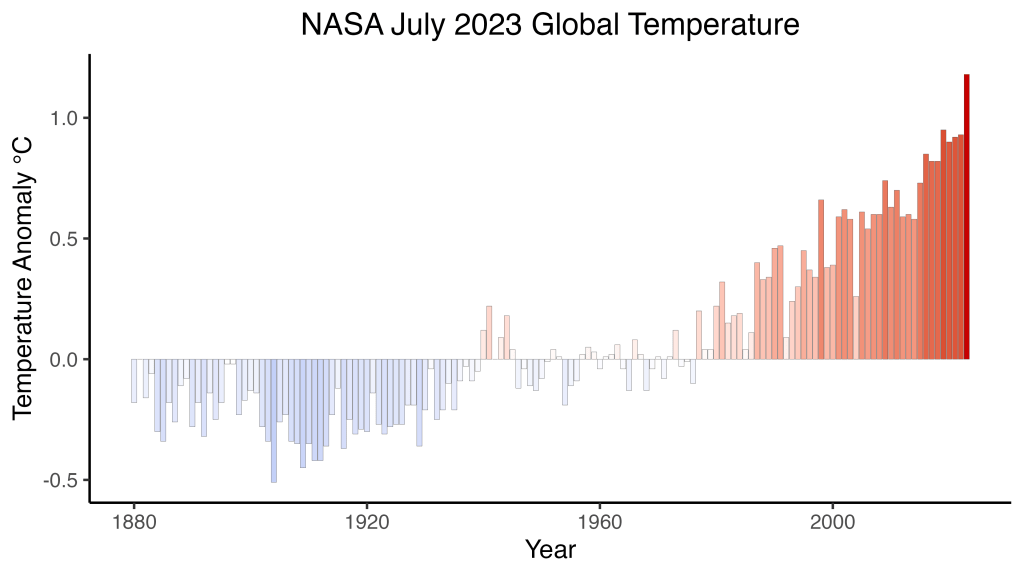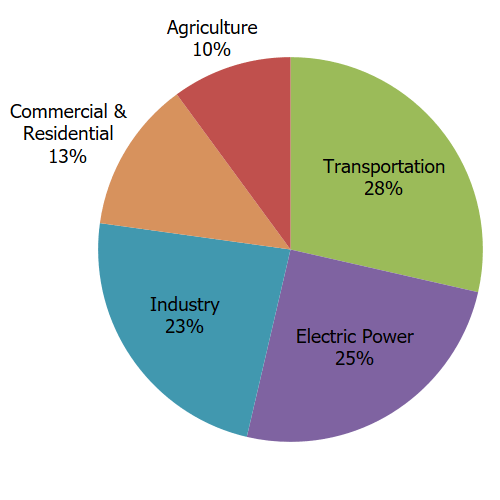
Scientists at NASA’s Goddard Institute for Space Studies (GISS) in New York have officially confirmed that July 2023 held the hottest global temperature ever in recorded history.
It’s quite obvious at this point that we’re feeling the effects of climate change, but what specifically contributed the most to July’s unprecedented heatwave?
Throughout the month, temperature records were shattered across multiple continents, with parts of South America, North Africa, North America, and the Antarctic Peninsula feeling the brunt of it. These regions experienced temperature increases around 7.2 F (4 C) above average, according to NASA’s press release on Monday.
It was also 2.1 F (1.18 C) warmer than the average July between 1951 and 1980, according to a NASA GISS analysis which defines “normal” temperatures as lasting several decades or more, typically 30 years. The five hottest Julys since 1880 have all occurred in the past five years.

Credits: NASA’s Goddard Institute for Space Studies / NASA’s Earth Observatory
The impact of rising temperatures reaches far beyond what’s just felt outside. It can lead to soaring mercury levels contributing to widespread environmental challenges, devastating wildfires, parched farmlands, and shrinking glaciers.
In response to the news of July being the hottest month ever, governments, businesses, and communities are being urged to accelerate their efforts to reduce greenhouse gas emissions, transition to renewable energy sources, and implement sustainable practices.
How did we get here?
Climate change is primarily driven by the increase in greenhouse gases in the Earth’s atmosphere, which trap heat and lead to the excessive warming of our planet.
The burning of fossil fuels, such as coal, oil, and natural gas, for energy, is also among one of the largest sources of carbon dioxide emissions. Although, the combustion of gasoline and diesel fuels in cars, trucks, airplanes, and large ships still dominates as the top emitter of greenhouse gases.
It’s also worth noting that deforestation and land-use changes release significant amounts of CO2 into the atmosphere as well.

Credit: United States Environmental Protection Agency
As the planet continues to experience the consequences of a rapidly warming climate, the record-breaking heat of July 2023 serves as a stark wake-up call for a planet in need of immediate action from the government and individuals.
Related stories:
Author: Arin Waichulis
Source: Electrek



